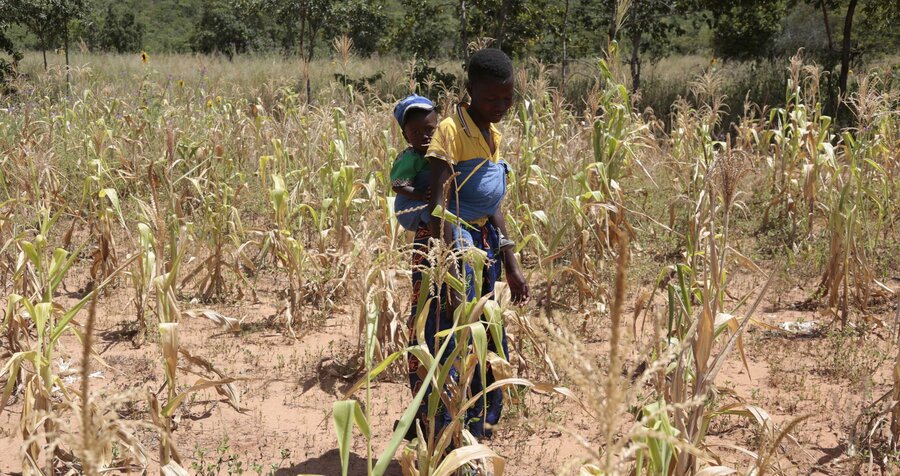- President Mnangagwa declares Zimbabwe’s drought a national disaster, highlighting the need for over two billion dollars in aid
- The El Niño weather phenomenon exacerbates the crisis, with 80% of Zimbabwe experiencing insufficient rainfall, affecting millions of people
President Emmerson Mnangagwa, on Wednesday, officially declared Zimbabwe’s drought a national disaster, signalling a dire need for over two billion dollars in aid to alleviate the hunger afflicting millions.
This declaration follows similar proclamations by Zambia in late February and Malawi in March, as the El Niño weather phenomenon exacerbates the humanitarian crisis in southern Africa.
Addressing journalists at the state house in Harare, Mnangagwa highlighted that more than 2.7 million Zimbabweans are set to face hunger this year, with 80% of the country experiencing insufficient rainfall.
“Preliminary assessments indicate a necessity for over two billion dollars to support various interventions in our national response,” stated Mnangagwa.
The government pledges to prioritize winter cropping to bolster reserves and collaborate with the private sector to facilitate grain imports.
El Niño, a natural weather phenomenon causing disrupted wind patterns and elevated ocean surface temperatures in the eastern and central Pacific, lies at the root of the crisis.
Since November, most Zimbabwean provinces have grappled with crop failure, with maize, a staple, declared a write-off in hotter regions.
Humanitarian agencies, including the World Food Programme, have described the situation as dire and urged donors to step up aid efforts.
Beyond Zimbabwe, neighbouring countries such as Botswana and Angola to the west and Mozambique and Madagascar to the east also confront severe hunger due to the ongoing drought.

